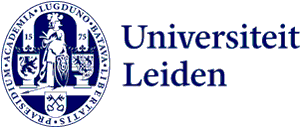
Leiden University student attends Nobel Peace Prize award ceremony
Natalia Sobrino-Saeb has attended the Nobel Peace Prize award ceremony in Oslo. She was awarded this honour after winning the essay competition of the Nobel Ignitor Fellowship, a programme that seeks to inspire young changemakers around the world – for change can be made by all of us: “You never know where things will take you.”
The Nobel Ignitor Fellowship programme is organised by the Nobel Peace Center and aims to provide young people around the globe with the skills they need to build a better world. During the selection process, students are invited to participate in events and challenges. The essay competition in which Natalia participated was one of these challenges.
“I thought: if I don’t win, at least I will have had the experience of trying.”
Initially, Natalia (21) was not sure if she should participate. A course she recently took at Leiden University College helped her overcome her doubts. “The course was about corruption. I discovered how journalism can be used to fix it.” After that, writing an essay on the topic only made sense. “I thought: if I don’t win, at least I will have had the experience of trying.”
And trying she did. Natalia wrote an essay with the telling title Life or Death: Being a Journalist and Exposing Corruption in Mexico, in which she outlined how Mexican journalists suffer from violence and intimidation. To her surprise, Natalia won and was invited to attend the Nobel Peace Prize ceremony in Oslo on December 10th. A few days later, we ask her about her experiences.

How do you look back on the essay challenge, where it all started?
“I am so happy that I did it, because it led to such an incredible weekend! I am still processing everything.”
In your essay, you mention the issue is not just about statistics, but about real people. Why did you find that important to point out?
“From January to June this year, 362 journalists were assaulted in Mexico. In 2016, every five days a journalist was killed somewhere in the world.
When we look at these numbers, it is easy to forget that these are all individuals, killed for just doing their job and performing a public service. And there are whole families behind them. If things were presented like this more often, maybe things could change.”
What do you think should happen to bring about that change?
“There needs to be more legislation to protect journalists, so that those who abuse them can be put to justice. And perhaps the main point of my essay was to raise awareness among young people about the situation of journalists in their own country. I wasn’t even aware of that myself, before I wrote the essay.”
Criticizing authorities in Mexico sounds like a risky business. Have you considered not submitting the essay because of that?
“After I had written it, I said to myself: now I am denouncing wrong, calling out politicians and others. Do I want to submit this? What if it gets into the wrong hands? But on the other hand: I have talked to two laureate winners. To see the fight they are taking on… it’s strengthening and inspiring. We should keep bringing these issues up.”
You met the laureates, journalists Muratov and Ressa, in person. What were they like?
“They are just like us, but at the same time, they are not. They have seen so much aggression, but they are still going. And you can see that they will keep going. They are incredibly kind and good people; they light up the desire to do something bigger than ourselves.”
“They light up the desire to do something bigger than ourselves”
You exchanged a few words with them. How did that conversation go?
“I told both of them how inspiring it is what they are doing. Ressa said that what I am doing is important too and I should keep going. And Muratov, he congratulated me and gave me a chocolate medal.” Natalia points proudly to the golden circle on the wall behind her: “It will stay there and I won’t eat it, ever!
Do you have any further plans regarding the Nobel Ignitor Fellowship?
“I want to continue being active. I have applied for becoming a student ambassador, so I can tell people why it matters to me and keep the ball rolling. And when I am in my master’s, I do want to pursue the actual programme.”
Last but not least: what is your message to students that want to make a change?
“When there’s an opportunity that seems too good to be true, go for it! You never know where things will take you.”
Do you want to make the world a better place? As a bachelor's student, you too can apply for the Nobel Ignitor Fellowship. Take a look at https://ignitor.nobelpeacecenter.org/

(Text: Michiel Knoester)
